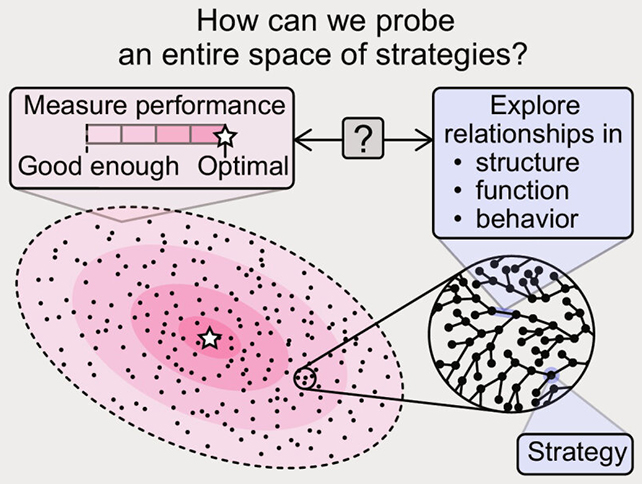A new study of animal behavior shows that using a 'good enough' strategy to complete a task could have advantages over striving for perfection.
Researchers from the Howard Hughes Medical Institute in the US wanted to challenge traditional methods of animal research, where diverse behaviors in activities such as mating, hunting, or evading predators are typically compared to some optimized method.
Using theoretical algorithms and models, the researchers took apart a simple and widely used foraging task – where animals (such as mice) get to choose between various options to get a reward – to come up with a vast number of alternative strategies for the job.

"Many of these strategies are ones we would have never dreamed up as possible ways of solving this task, but they do work well, so it's entirely possible that animals could also be using them," says physicist Ann Hermundstad.
"They give us a new vocabulary for understanding behavior."
Of course, we know that animals (including humans) can solve problems in a number of ways: it's common sense that you can finish a maze or complete a video game by pure trial and error, for example, or by practicing on simpler examples, or by copying others.
The researchers formulated more than a quarter of a million approaches – or 'programs' – that fall between the perfect approach and a random approach. Some of these programs achieved the end goals while using fewer resources, which means they might actually be preferable.
They also found in spite of such diverse approaches, they could all be understood in terms of algorithmic 'mutations', where strategies evolved from one another with tiny tweaks in their steps.
Around 4,000 of the programs described were 'good enough' to get results, the researchers found, of which 90 percent did something a little different to the optimal strategy.
That's important, because it shows even large changes from a perfect strategy can still get results that work, while providing some variation that could be useful in other tasks. Veering away from an optimal strategy may negatively impact the outcome of the prime focus, but this comprimise is offset when multiple tasks are taken into account – a situation that more accurately reflects what we all face every day.
"If you are thinking about an animal not being a specialist who is optimized to solve just one problem, but rather a generalist who solves many problems, this really is a new way to study that," says physicist and computer scientist Tzuhsuan Ma.
For researchers, the findings could demonstrate why an animal might not always take what seems to be the best route from A to B, or provide better understanding of how the brain weighs up the chances of success in a goal with resources available.
"As soon as you release yourself from being perfect, you would be surprised just how many ways there are to solve a problem," says Ma.
The research has been published in Science Advances.
